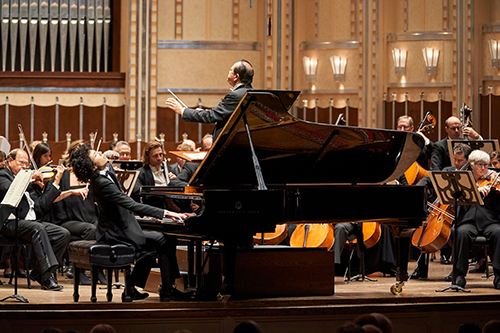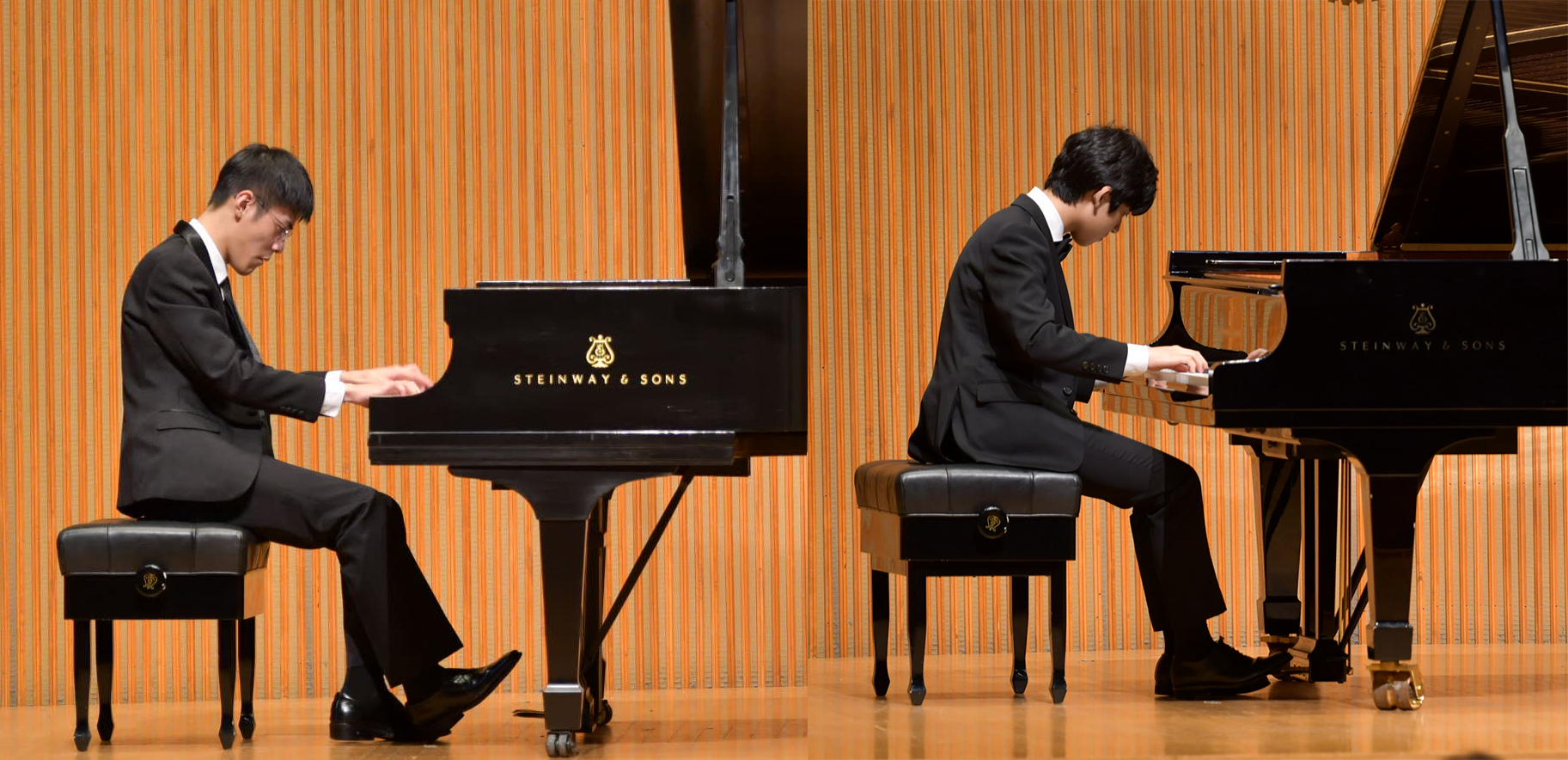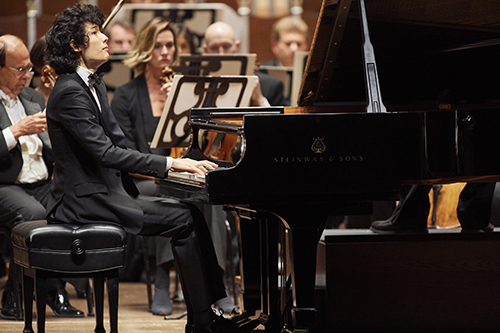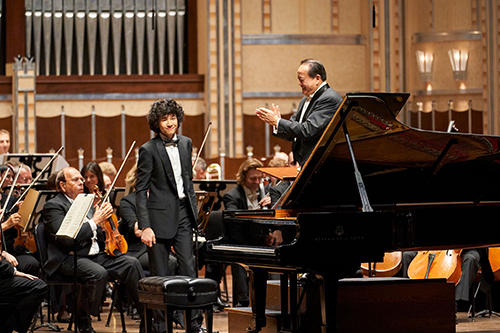by Daniel Hathaway

As Oberlin Conservatory dean Andrea Kalyn suggested in her welcoming remarks, the generous cash prizes are certainly a draw for the Cooper, but the opportunity to perform with the finest orchestra on the planet is its own award. The three pianists who remained in the original draw of 31 had earned that privilege and made the most of their half-hours on the stage.
The first half of the evening was devoted to the two Chopin works. 17-year-old Kai-Min Chang from Taiwan led off with No. 1 in e minor, followed by 14-year-old Yunchan Lim from Korea with No. 2 in f minor.

Both Chopin soloists performed with poise and note-perfect technique. Chang’s phrasing was more regimented, Lim’s purposeful yet supple. Both demonstrated some understandable inexperience performing with orchestra. Chang sometimes forged ahead without paying much attention to Ling or his instrumental colleagues. Lim checked in frequently, but occasionally reached cadence points a bit out of sync with the rest of the ensemble.
If the long first movements were difficult to organize, both pianists relaxed and allowed the music to breathe in the slow movements. Chopin pre-determined the shape of the two finales by casting them in the form of rondos based on Polish folk dances — a Krakowiak in the first concerto, a Mazurka in the second. Chang and Lim took to them with obvious delight, playing with buoyancy and verve.

Yun’s tasteful flamboyance matched up well with Tchaikovsky’s score. While his volleys of double octaves weren’t always tidy, his playing was continuously exciting where it mattered, and meltingly expressive when the composer took a different tack. Overall, Yun opted to maintain a big, monochrome palette of sound rather than searching for a variety of color, and in this concerto that plan worked. The beaming young soloist connected with the audience during his gracious acknowledgement of applause as surely as he had from the keyboard.

Severance Hall photos by Roger Mastroianni. Chang & Lim photos from the Recital Round at Oberlin by Yevhen Gulenko.
Published on ClevelandClassical.com July 21, 2018.
Click here for a printable copy of this article


